"IVE GOT A COOLANT LEAK IN THE ENGINE COMPARTMENT,If it is the freeze plugs how bad are they to change, or can you change them?"
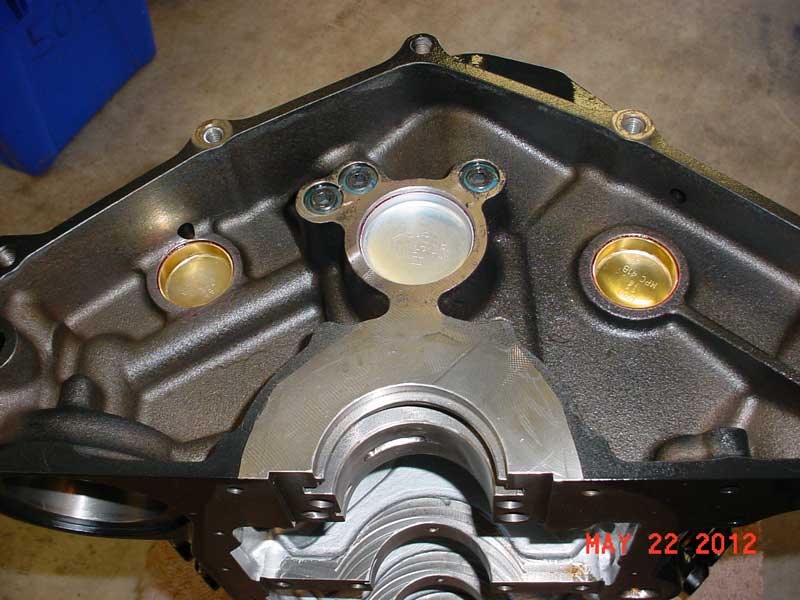
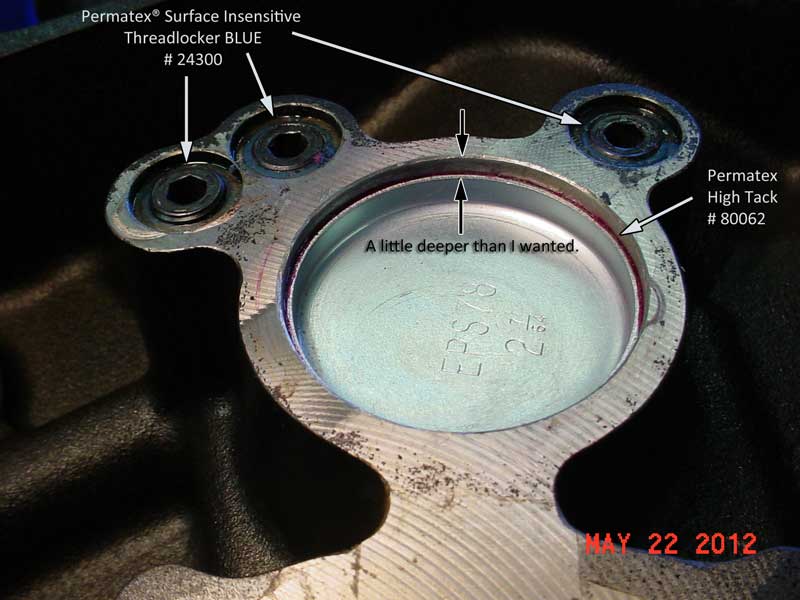
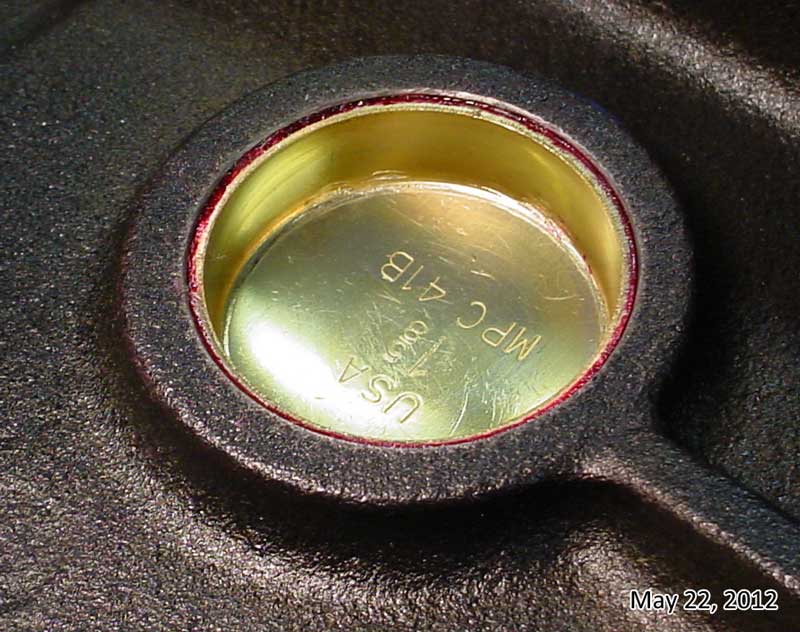
RELATED THREAD
viewtopic.php?f=54&t=5946&p=18310#p18310
viewtopic.php?f=54&t=5946&p=23296#p23296
if you've got a freeze plug leaking in most cases its originally a zinc plated steel freeze plug that rusted as the zinc coating is designed to corrode or it was improperly installed
spend a couple dollars and get brass freeze plugs and coat them with the correct sealant before install
and use ANODES and the proper GROUNDS and a 50% mix of antifreeze and that tends not to be an issue
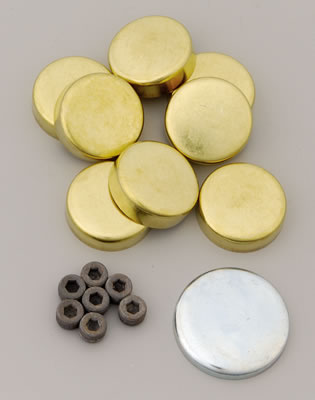
http://wiki.answers.com/Q/How_do_you_ch ... the_engine
http://www.ehow.com/how_2268885_replace ... plugs.html
http://www.automedia.com/Replacing_a_Fr ... 070401fp/1
http://www.valvoline.com/carcare/articl ... 2&scccid=3
viewtopic.php?f=57&t=348
viewtopic.php?f=57&t=853
THE ANSWER DEPENDS ON BOTH LOCATION of the leaking freeze plug and YOUR skill and tools available, it can be a 15 minute job or take most of a day to fix, getting ACCESS to the deffective plug may be a total P.I.T.A.
I ALWAYS INSIST ON BRASS NOT STEEL FREEZE PLUGS SIMPLY BECAUSE THEY ARE FAR LESS LIKELY TO RUST OUT
think how much fun the two in the rear of the block can be to access
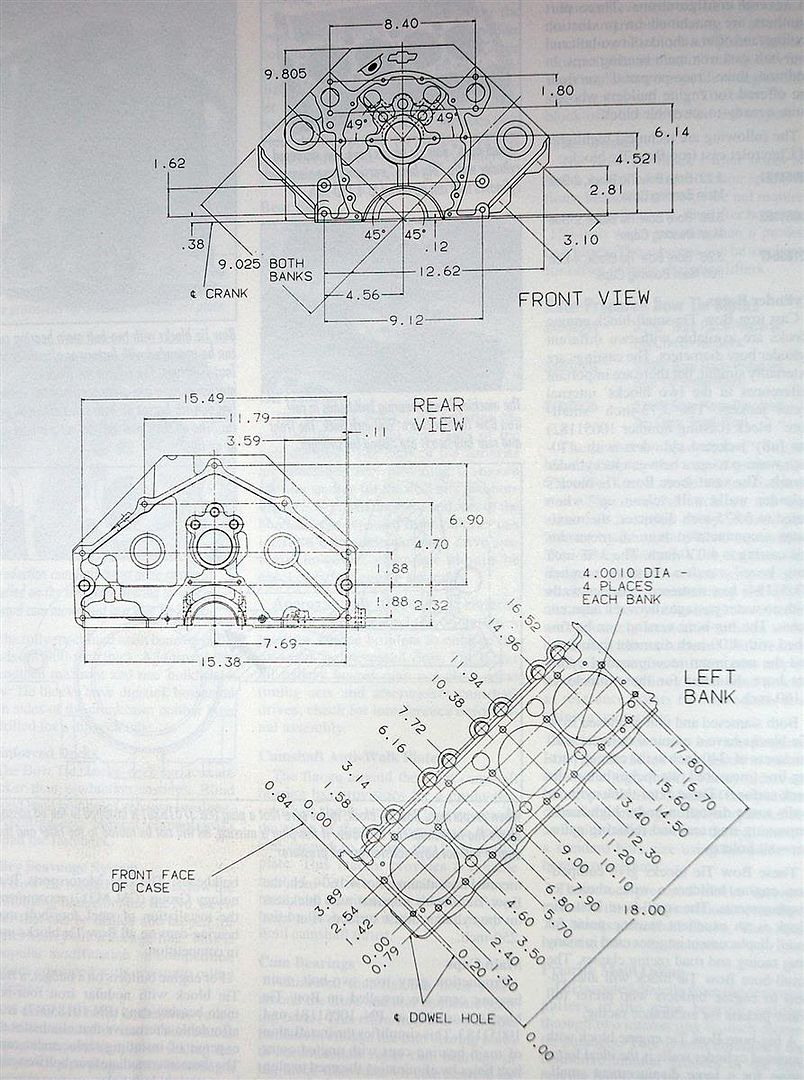
OR THE TWO DIRRECTLY UNDER THE MOTOR MOUNTS WITH THE ENGINE IN THE CAR
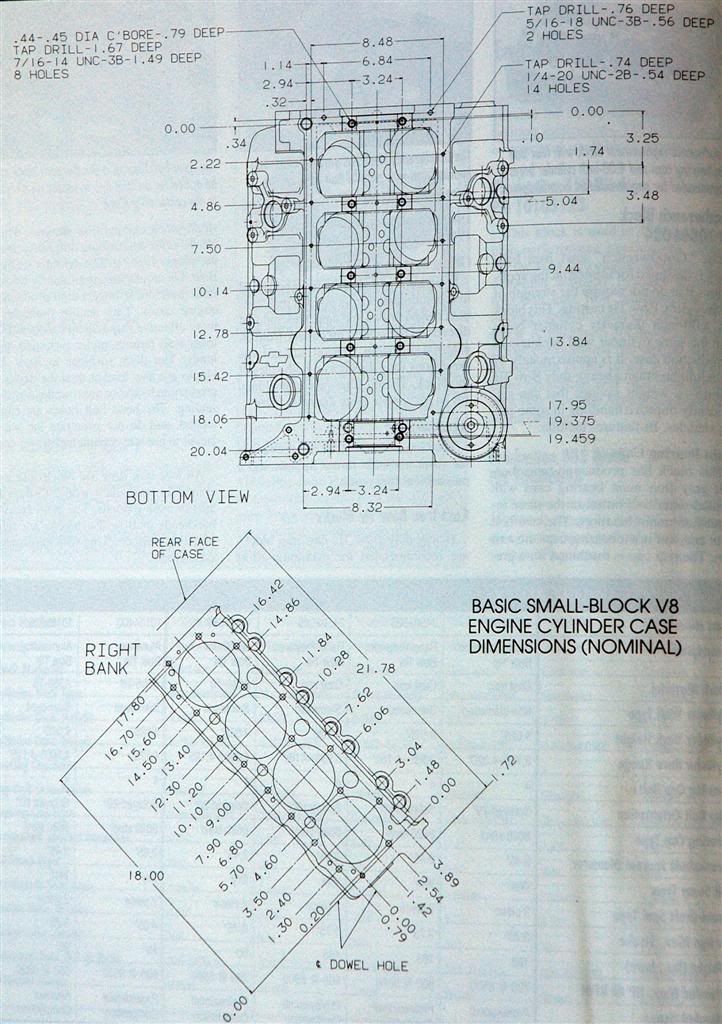
viewtopic.php?f=51&t=281&p=344&hilit=brass#p344
this article covers most of it well
http://www.circletrack.com/enginetech/c ... index.html
these come in handy
http://www.harborfreight.com/cpi/ctaf/d ... mber=95853

hint
use only BRASS freeze plugs and coat the edges and the hole in the block edge with this sealant
http://www.permatex.com/products/Automo ... ealant.htm
before you install them
Freeze Plugs
When an engine block is manufactured, a special sand is molded to the shape of the coolant passages in the engine block. This sand sculpture is positioned inside a mold and molten iron or aluminum is poured to form the engine block. When the casting is cooled, the sand is loosened and removed through holes in the engine block casting leaving the passages that the coolant flows through. Obviously, if we don't plug up these holes, the coolant will pour right out.
Plugging these holes is the job of the freeze-out plug. These plugs are steel discs or cups that are press fit in the holes in the side of the engine block and normally last the life of the engine with no problems. But there is a reason they are called freeze-out plugs. In the early days, many people used plain water in their engines, usually after replacing a burst hose or other cooling system repair. "It is summer and I will replace the water with antifreeze when the weather starts turning".
Needless to say, people are forgetful and many a motor suffered the fate of the water freezing inside the block. Often, when this happened the pressure of the water freezing and expanding forced the freeze-out plugs to pop out, relieving the pressure and saving the engine block from cracking. (although, just as often the engine cracked anyway). Another reason for these plugs to fail was the fact that they were made of steel and would easily rust through if the vehicle owner was careless about maintaining the cooling system. Antifreeze has rust inhibitors in the formula to prevent this from happening, but those chemicals would lose their effect after 3 years, which is why antifreeze needs to be changed periodically. The fact that some people left plain water in their engines greatly accelerated the rusting of these freeze plugs.
When a freeze plug becomes so rusty that it perforates, you have a coolant leak that must be repaired by replacing the rusted out freeze plug with a new one. This job ranges from fairly easy to extremely difficult depending on the location of the affected freeze plug. Freeze plugs are located on the sides of the engine, usually 3 or 4 per side. There are also freeze plugs on the back of the engine on some models and also on the heads.
As long as you are good about maintaining the cooling system, you need never worry about these plugs failing on modern vehicles


both of these work great at sealing head bolt threads, and freeze plugs etc.
for temporary repairs these work
http://www.napaonline.com/masterpages/N ... nsion+Plug
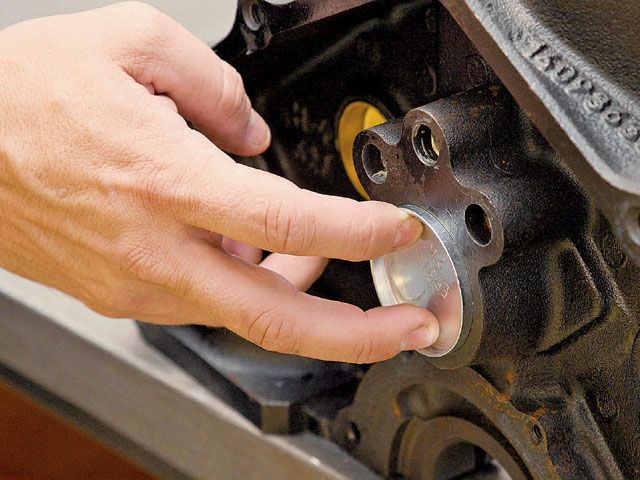
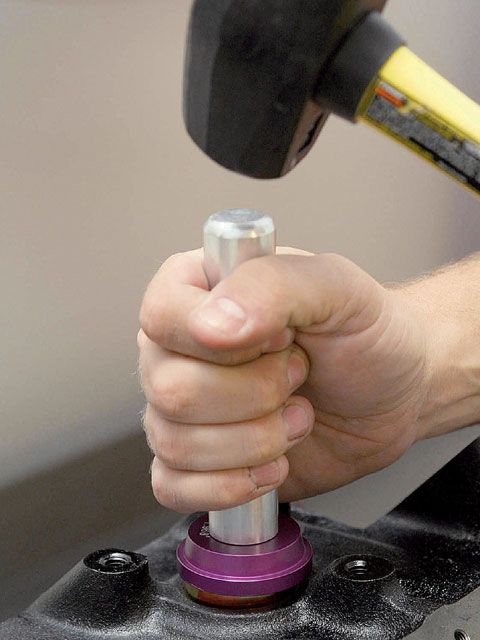
http://www.tooltopia.com/astro-pneumatic-7824.aspx
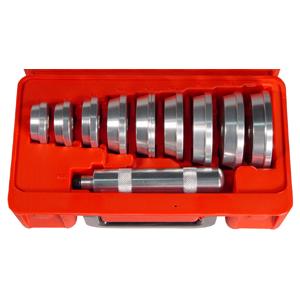
http://forum.grumpysperformance.com/viewtopic.php?f=54&t=1800
READ THRU THIS LINK
http://www.chevyhiperformance.com/tech/ ... index.html
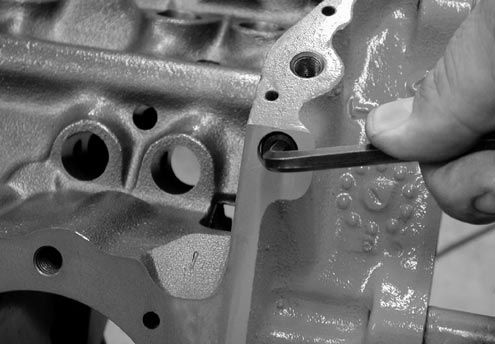
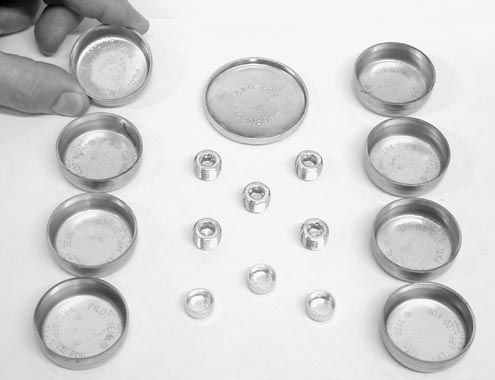
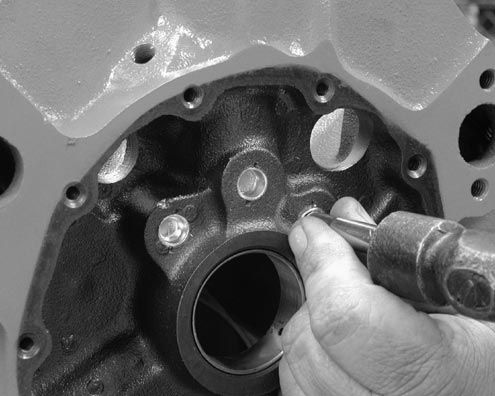
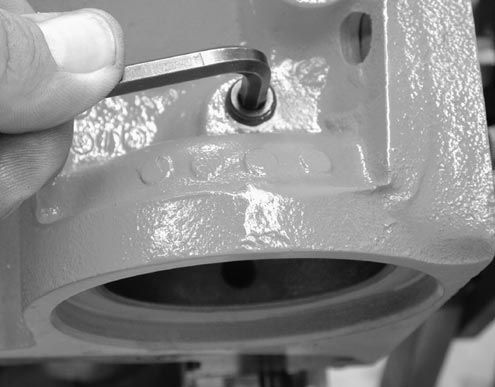
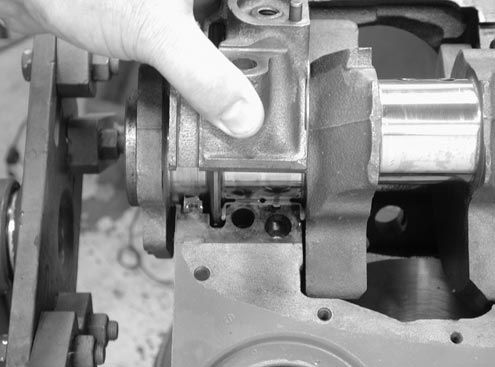
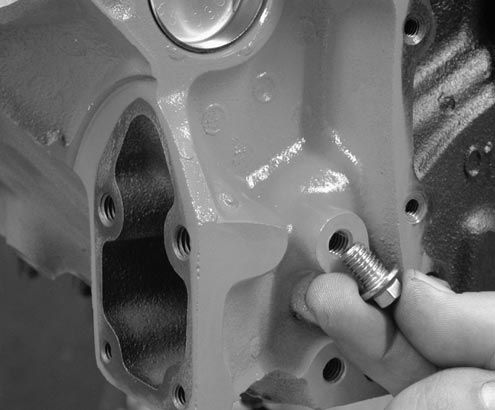
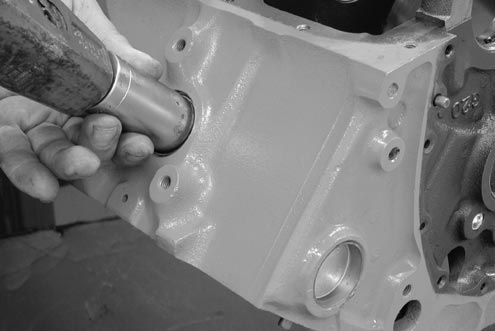
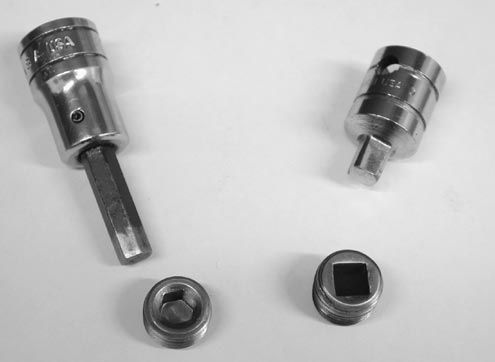
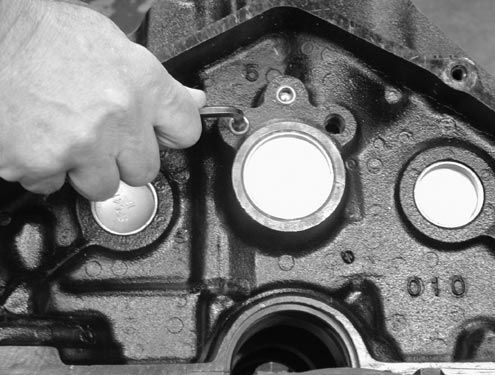
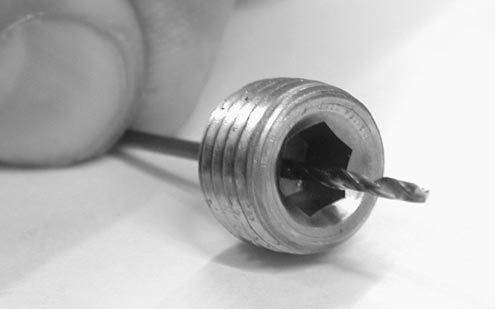
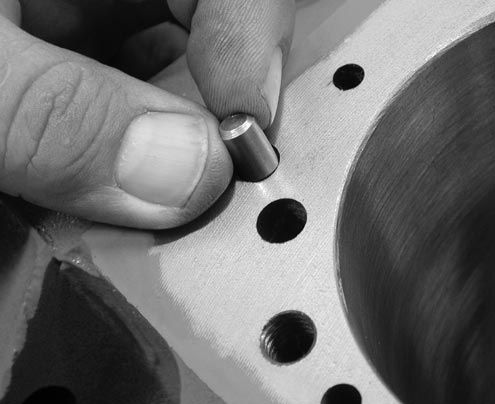
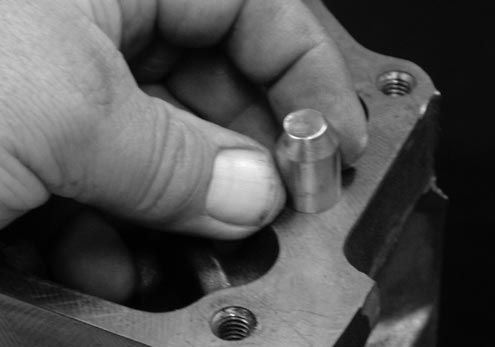
http://www.chevyhiperformance.com/tech/ ... index.html



RELATED THREAD
viewtopic.php?f=54&t=5946&p=18310#p18310
viewtopic.php?f=54&t=5946&p=23296#p23296
if you've got a freeze plug leaking in most cases its originally a zinc plated steel freeze plug that rusted as the zinc coating is designed to corrode or it was improperly installed
spend a couple dollars and get brass freeze plugs and coat them with the correct sealant before install
and use ANODES and the proper GROUNDS and a 50% mix of antifreeze and that tends not to be an issue

http://wiki.answers.com/Q/How_do_you_ch ... the_engine
http://www.ehow.com/how_2268885_replace ... plugs.html
http://www.automedia.com/Replacing_a_Fr ... 070401fp/1
http://www.valvoline.com/carcare/articl ... 2&scccid=3
viewtopic.php?f=57&t=348
viewtopic.php?f=57&t=853
THE ANSWER DEPENDS ON BOTH LOCATION of the leaking freeze plug and YOUR skill and tools available, it can be a 15 minute job or take most of a day to fix, getting ACCESS to the deffective plug may be a total P.I.T.A.
I ALWAYS INSIST ON BRASS NOT STEEL FREEZE PLUGS SIMPLY BECAUSE THEY ARE FAR LESS LIKELY TO RUST OUT
think how much fun the two in the rear of the block can be to access

OR THE TWO DIRRECTLY UNDER THE MOTOR MOUNTS WITH THE ENGINE IN THE CAR

viewtopic.php?f=51&t=281&p=344&hilit=brass#p344
this article covers most of it well
http://www.circletrack.com/enginetech/c ... index.html
these come in handy
http://www.harborfreight.com/cpi/ctaf/d ... mber=95853

hint
use only BRASS freeze plugs and coat the edges and the hole in the block edge with this sealant
http://www.permatex.com/products/Automo ... ealant.htm
before you install them
Freeze Plugs
When an engine block is manufactured, a special sand is molded to the shape of the coolant passages in the engine block. This sand sculpture is positioned inside a mold and molten iron or aluminum is poured to form the engine block. When the casting is cooled, the sand is loosened and removed through holes in the engine block casting leaving the passages that the coolant flows through. Obviously, if we don't plug up these holes, the coolant will pour right out.
Plugging these holes is the job of the freeze-out plug. These plugs are steel discs or cups that are press fit in the holes in the side of the engine block and normally last the life of the engine with no problems. But there is a reason they are called freeze-out plugs. In the early days, many people used plain water in their engines, usually after replacing a burst hose or other cooling system repair. "It is summer and I will replace the water with antifreeze when the weather starts turning".
Needless to say, people are forgetful and many a motor suffered the fate of the water freezing inside the block. Often, when this happened the pressure of the water freezing and expanding forced the freeze-out plugs to pop out, relieving the pressure and saving the engine block from cracking. (although, just as often the engine cracked anyway). Another reason for these plugs to fail was the fact that they were made of steel and would easily rust through if the vehicle owner was careless about maintaining the cooling system. Antifreeze has rust inhibitors in the formula to prevent this from happening, but those chemicals would lose their effect after 3 years, which is why antifreeze needs to be changed periodically. The fact that some people left plain water in their engines greatly accelerated the rusting of these freeze plugs.
When a freeze plug becomes so rusty that it perforates, you have a coolant leak that must be repaired by replacing the rusted out freeze plug with a new one. This job ranges from fairly easy to extremely difficult depending on the location of the affected freeze plug. Freeze plugs are located on the sides of the engine, usually 3 or 4 per side. There are also freeze plugs on the back of the engine on some models and also on the heads.
As long as you are good about maintaining the cooling system, you need never worry about these plugs failing on modern vehicles


both of these work great at sealing head bolt threads, and freeze plugs etc.
for temporary repairs these work
http://www.napaonline.com/masterpages/N ... nsion+Plug


http://www.tooltopia.com/astro-pneumatic-7824.aspx

http://forum.grumpysperformance.com/viewtopic.php?f=54&t=1800
READ THRU THIS LINK
http://www.chevyhiperformance.com/tech/ ... index.html












http://www.chevyhiperformance.com/tech/ ... index.html
